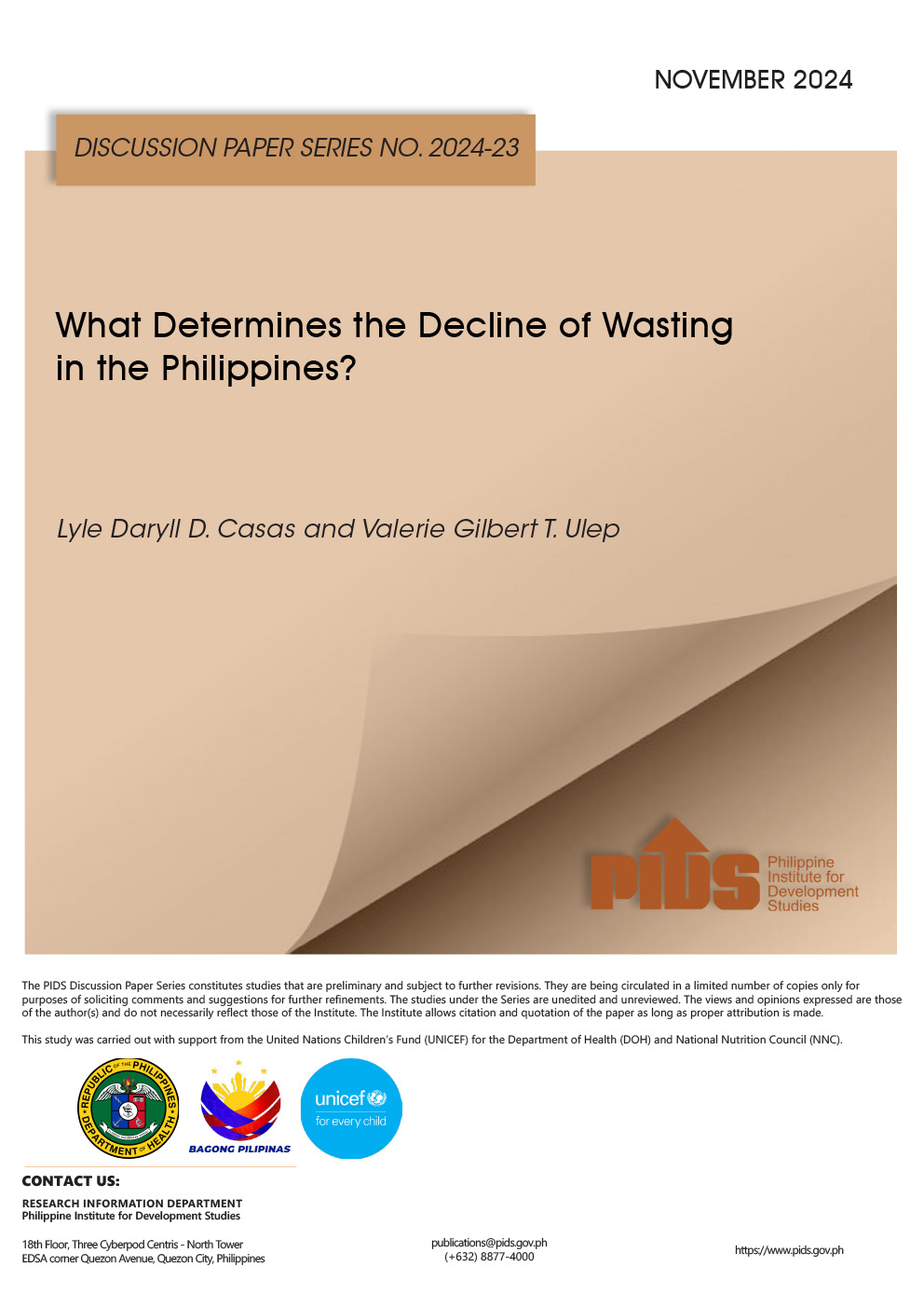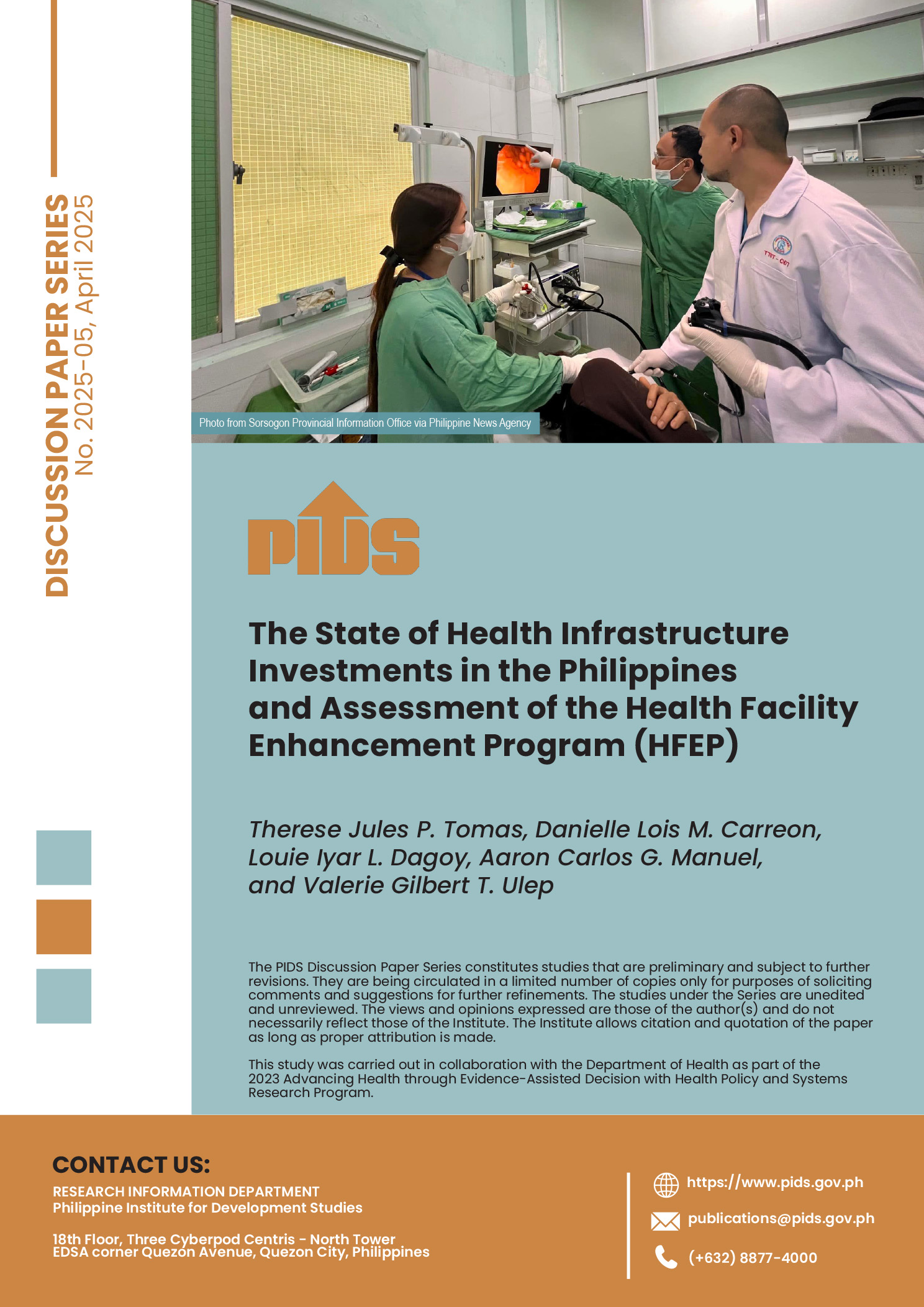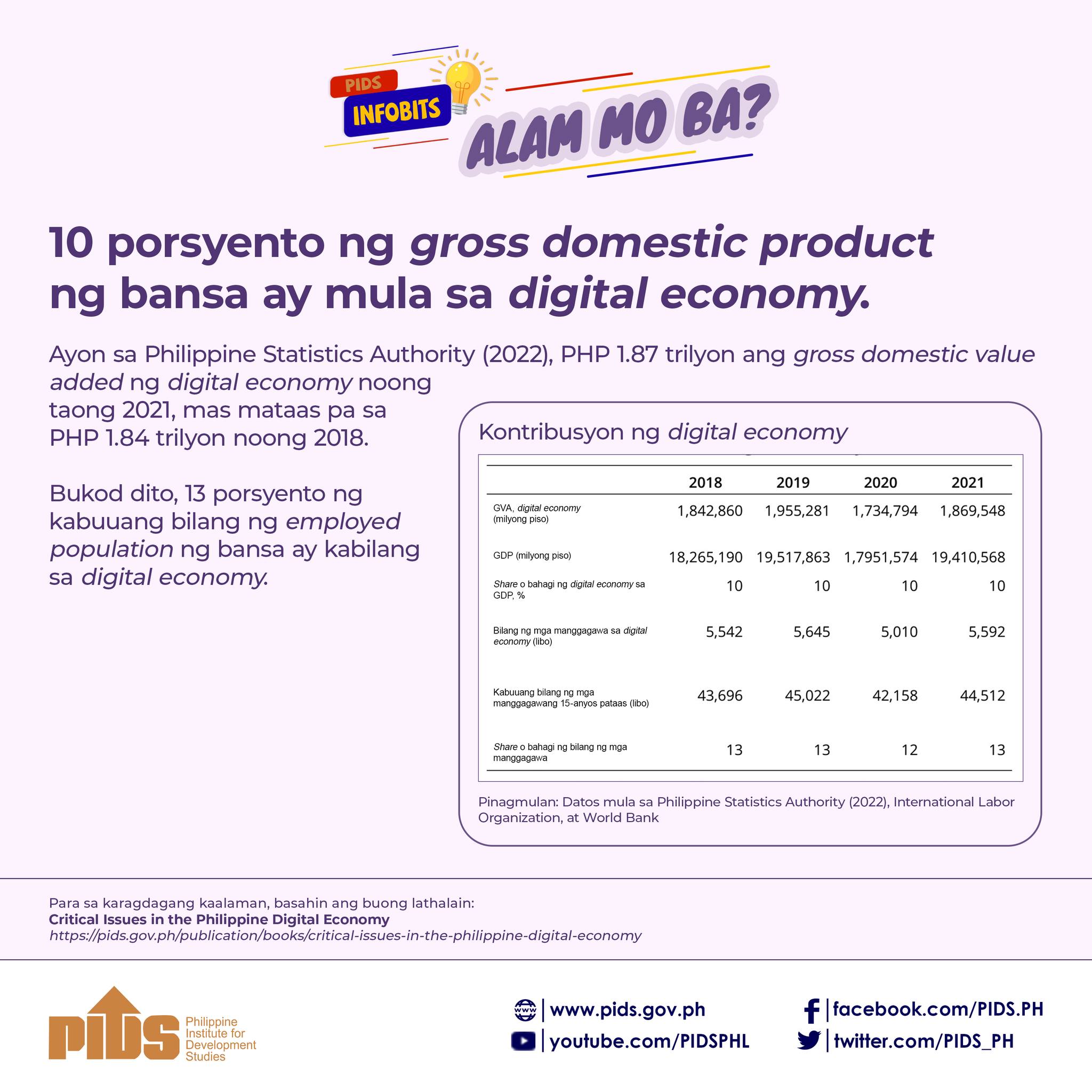ECONOMIC growth will not be sustainable without better health outcomes, the country’s socioeconomic planning secretary said on Thursday.
National Economic and Development Authority (NEDA) Secretary Arsenio Balisacan emphasized that a productive economy drives innovation, creates quality jobs, and reduces poverty and inequality. Yet, sustaining these gains requires a healthier workforce.
“Achieving and sustaining rapid inclusive economic growth, however, depends on robust health outcomes, which serve as the indispensable foundation for long-term progress,” Balisacan said in a video message at the launch of the Philippine Institute for Development Studies’ (188体育) Health Economics and Finance Program (HEFP).
He pointed out that increased public health spending is linked to higher labor productivity, citing research that highlights this connection.
“Cross-country examples from Asean nations also highlight a strong correlation between higher gross domestic product, or GDP, per capita, investments in health, and improved life expectancy,” he said.
Despite this, he acknowledged the country still faces significant challenges. He cited a 188体育 report on early childhood care and development found that one in three children suffers from stunting, and nine out of 10 struggle with reading and proficiency.
Data from the Philippine Statistics Authority showed that in 2023, nearly 44.4 percent of the country’s total health spending came from out-of-pocket expenses, highlighting the need to reduce healthcare costs and expand access to affordable, quality services.
“Ensuring financial risk protection will allow households to allocate resources toward other essential needs,” Balisacan said.
To tackle these issues, the Marcos administration has rolled out its Eight-Point Action Agenda, aligned with the Philippine Development Plan 2023-2028, which prioritizes health reforms. Moreover, a significant part of this effort involves pushing forward with initiatives under the Universal Health Care (UHC) Act.
“Given the scale of challenges in this sector, the need for evidence-based health reforms has never been more urgent,” the Neda chief said.
He then praised the creation of the HEFP as a critical step in addressing the country’s healthcare challenges, saying that it is “a testament to the sector’s importance and the commitment to evidence-based policymaking.”
Through the program’s research and technical assistance, the Department of Health and the Philippine Health Insurance Corporation (PhilHealth) can refine their strategies to expand benefits, improve access to healthcare and enhance financial risk protection.
The HEFP, officially launched on Thursday, was established under Republic Act 11975 in 2023 to study reimbursement reforms in PhilHealth and conduct research that supports the effective implementation of the UHC Act.











